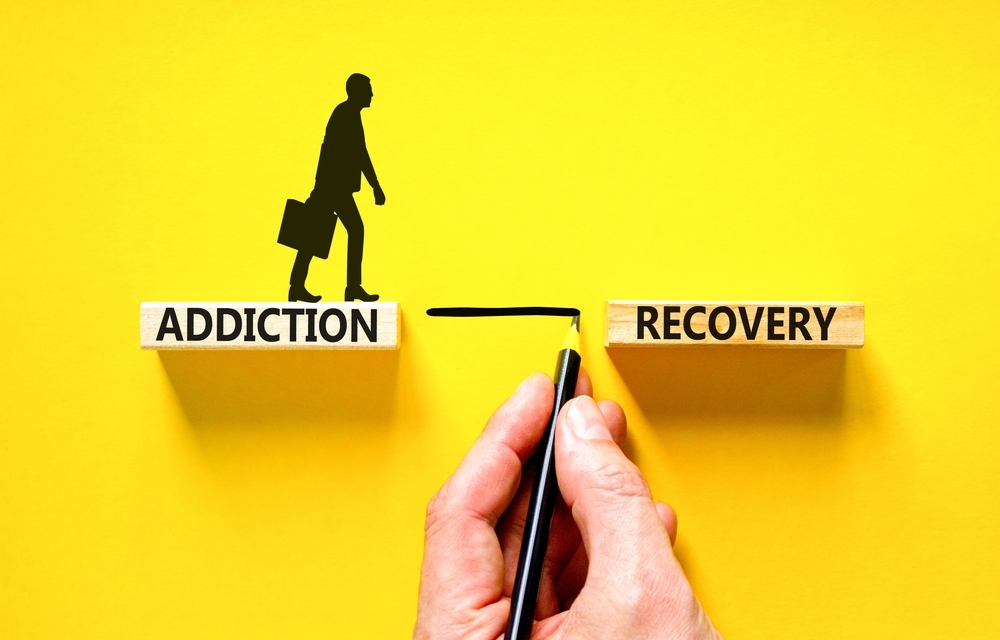Last Updated:
February 28th, 2025
A lot of us put a lot of pressure on ourselves to perform. This can impact every area of our lives. In today’s society, hustle culture is rewarded. We have come to believe that, like diamonds, great things are formed under pressure. But the reality is that over-pressuring ourselves can have devastating effects. It is positive to have expectations and set goals. But this is only helpful if the expectations are realistic, and the goals are achievable. This is especially pertinent in the world of addiction rehab. People can put immense stress on themselves to recover quickly and fully with no hiccups. But the reality is that healing often isn’t linear. Necessarily, then, our recovery from addiction can’t be perfect.
But if this is the case, how can we learn to let go of this striving for perfection? What are the costs of these high expectations of ourselves? Crucially, how can we start to let go of these internal pressures and start to embrace progress over perfection?
What is perfectionism?
Perfectionism is
‘The tendency to demand of others or of oneself an extremely high or even flawless level of performance, in excess of what is required by the situation.’
On the surface, to some people, this can seem like quite a desirable trait. A lot of people take pride in having very high standards. But herein lies the problem. According to the American Psychological Association, this kind of personality type ‘is associated with depression, anxiety, eating disorders, and other mental health problems.’
This suggests that rather than being a positive source of productivity and progress, perfectionism can act to psychologically drain us. It can lead us to feel unworthy, even using very negative language about ourselves such as claiming that we have ‘failed’ or are ‘useless.’ This type of self-perception only heightens the already difficult feelings experienced in addiction. Chastising ourselves for finding a tough situation challenging is an unfair – and impossible – punishment to give.
If we expect the impossible from ourselves in recovery, we will never progress.
Why is it harmful?
The primary problem with perfectionism is the expectation of reaching an impossible standard. Something that is perfect is ‘entirely without fault.’ [3] As humans, expecting this from ourselves is very unfair. Especially when in situations of intense pressure and distress.
Harmful tendencies
Perfectionists are likely to experience:
- High anxiety
- Paranoia
- Burnout
- Low self-regard
- Avoidance behaviours (such as procrastination)
- Maladaptive impulses
Skewed perception of progress
If we set increasingly high standards for ourselves, then we will never feel rewarded. Rewards are an essential part of motivation. When we achieve things, we can get a sense of pleasure and success. If we do not perceive anything we do as an achievement (because we immediately shift our focus to the next task) then we can degrade our sense of motivation.
This can mean that we find ourselves procrastinating, avoiding or quitting difficult tasks. In addiction recovery this is a very big risk, as it suggests that perfectionists are likely to exit treatment or relapse out of frustration. This makes moderating our expectations of recovery an essential part of the process. Whilst rehabilitation is a tough path to walk, it is something you can scale with the right support.
Addiction recovery
Perfectionism can make us feel like progress is all slog and no gain. But we know that recovery does not function like that. Perfectionist perspectives can limit our ability to accurately self-reflect and identify where positive steps have been taken. This can lead us to feel trapped in our current circumstances, as though recovery is an impossible feat.
Statistics
A total of 290,635 adults were in addiction treatment between 2022 and 2023. In this time, 137,749 were accessing services for the first time.
During these months, 127,385 ‘exited the drug and alcohol treatment system.’ Out of all of these people, 46% have ‘successfully completed their treatment.’ This suggests that over half of people leaving treatment had not stayed for the full course of support.
Whilst these statistics may seem overwhelming – or even defeatist – they help us to see the reality of addiction treatment. It is not possible to achieve perfection during recovery, and neither is it realistic to expect it from yourself. But that does not mean that recovery is a futile effort.
The reality of recovery
Recovery is an elusive concept. It is hard to pinpoint when we have actually ‘recovered.’ This is because for many people, the journey to sober living is marked with small but meaningful progress. Incremental steps that suggest meaningful shifts, rather than large, glaringly obvious changes. These shifts build over time.
Of course, there are ways to mark specific milestones – such as keeping track of how many days, weeks or months you have been clean. But a lot of the time, the changes we experience are not easy to quantify in subjective terms. They are often more personal than that. This makes striving for ‘perfect’ recovery near impossible. The goal posts for recovery will always change, and therefore you will struggle to ever meet your expectations. This kind of thinking can become a recipe for disaster. It can lead to burnout, low self-satisfaction and overly strict, restrictive ways of living.
Your picture of addiction recovery may be very different to someone else’s. The best way to manage perfectionism in rehab is by beginning to accept that progress is subjective.
Steps to embracing progress over perfection
Perfectionism starts to take hold when we begin to obsess with the end goal. It is often driven by black and white thinking. But these thought processes are not conducive to healthy self-regard. They can act to restrict the ways we engage with our recovery journeys.
A change will come when you begin to recognise the power of progress over perfection. This may take some time, but this mental shift can be very meaningful in recovery and beyond.
Small steps you can take towards this include:
- Writing down 1-3 things you have achieved each day
- Set reasonable goals
- Practicing gratitude
- Keeping a ‘progress’ journal
- Keep a mood tracker to illustrate how your feelings change over time
- Work on how you approach feelings of failure
- Interrogate why you struggle with the idea of finding things difficult
- Implement fun and leisure activities
- Engage with behavioural therapy to challenge perfectionist thinking
- Experiment with different ways of showing yourself compassion
- Consider if there may have been a time when you benefited from a mistake
Perfectionism is not a trait we can shake off over night. But it is something you can work on during your time in rehab.
Start your path to addiction recovery
Here at UKAT, we know that there can be many barriers to accessing addiction help. One of these can be self-critical and perfectionist tendencies. Contact us today for a free, confidential consultation with a member of our team. We are here to lend a listening, non-judgmental ear and guide you through potential options for specialist, holistic addiction support. We can talk you through the bespoke packages we offer to identify the most appropriate treatment for you. At UKAT, we will never expect perfection. We can help you to start changing your approach to recovery.
(Click here to see works cited)
- https://dictionary.apa.org/perfectionism
- https://dictionary.apa.org/perfectionism
- https://www.merriam-webster.com/dictionary/perfect
- https://www.researchgate.net/profile/Paul-Hewitt/publication/277686664_The_Destructiveness_of_Perfectionism_Revisited_Implications_for_the_Assessment_of_Suicide_Risk_and_the_Prevention_of_Suicide/links/586ee7e908aebf17d3a87f88/The-Destructiveness-of-Perfectionism-Revisited-Implications-for-the-Assessment-of-Suicide-Risk-and-the-Prevention-of-Suicide.pdf
- https://ray.yorksj.ac.uk/id/eprint/1950/1/Stoeber%20Damian%20Madigan%20%282017%29%20BC.pdf
- https://www.gov.uk/government/statistics/substance-misuse-treatment-for-adults-statistics-2022-to-2023/adult-substance-misuse-treatment-statistics-2022-to-2023-report#peoplein-treatment-substance-sex-age
- https://www.gov.uk/government/statistics/substance-misuse-treatment-for-adults-statistics-2022-to-2023/adult-substance-misuse-treatment-statistics-2022-to-2023-report#peoplein-treatment-substance-sex-age





